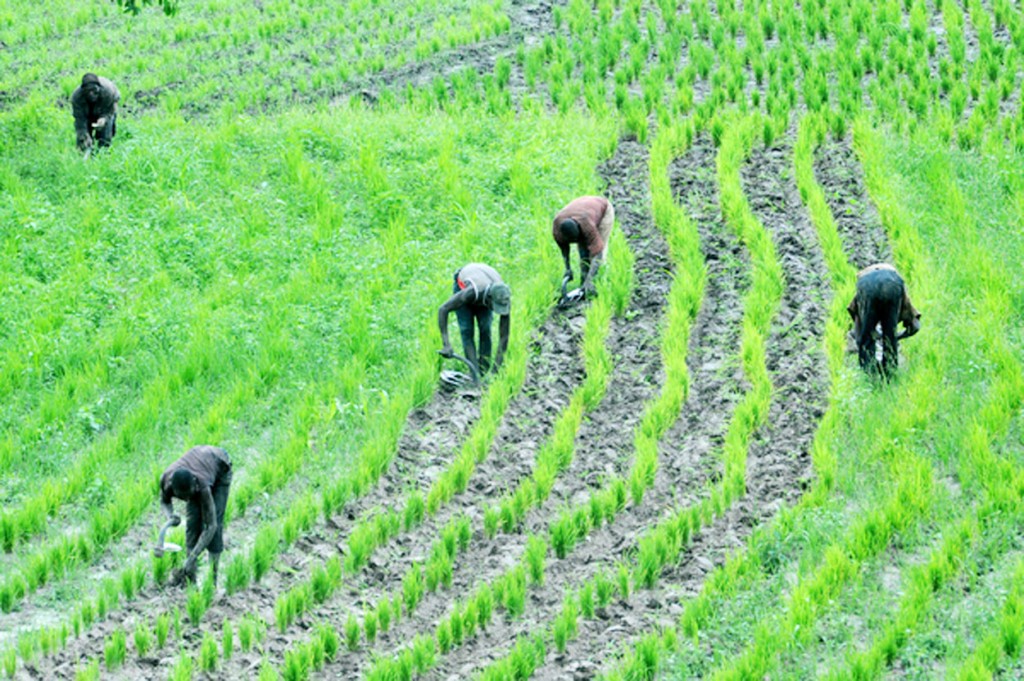CBN Commits N200bn On 300,000 Social Housing Scheme
The Central Bank of Nigeria, CBN, has committed N200 billion to kickstart the social housing projects, under the Economic Sustainability Plan, ESP.
Already about 20 states have indicated interest in the ESP, which is aimed at providing affordable houses for low-income earners.
This was made known on Sunday in Abuja in a statement issued by his Senior Special Assistant to the President on Media and Publicity, Office of the Vice President, Mr. Laolu Akande.
Recall that in June 2020, President Muhammadu Buhari approved the sum of N2.3 trillion Economic Sustainability Plan prepared by the Vice President Yemi Osinbajo-led Economic Sustainability Committee. Akande in the statement said that the social housing project will employ both the services of established developers and young small-medium scale professional contractors (architects, engineers, quantity surveyors, accountants, etc).
The housing project which cuts across the six geopolitical zones of the country is comprised of one, two and three bedroom units, with one bedroom unit going between N1.8 miliion to N2 million, while financial assistance would be available for Nigerians to pay the mortgage. According to the statement, “The Federal Government social housing scheme is one of the planned schemes under the ESP targeted at providing 300,000 low-income houses and creating 1.8 million jobs in the process.
“To achieve these goals, the Family Homes Funds has been appointed as the implementing agency for this initiative and it will construct 300,000 housing units across the country.
“To kickstart the social housing projects, the CBN has already committed to a N200 billion facility and most of the sites where the housing project will commence have already been identified across various geo-political zones by the Federal Government. “The early start sites include those in Osun and Ogun in the Southwest; Enugu in the Southeast; Delta, in the South-south; Bauchi in the Northeast; Kebbi in the Northwest; Nasarawa and Plateau in the North-central; and a number of sites in Abuja.
“Several other states including Abia, Anambra, Ebonyi, Imo, Cross River, Sokoto, Kaduna, Zamfara, Katsina, Borno, and Yobe, are also working towards kick-starting the project in their states in the next phase.
“The programme has 1-, 2-, and 3-bedroom units that will be sold at low prices. The 1-bedroom unit will cost as little as between N1.8miliion to N2million, while financial assistance would be available for Nigerians to pay the mortgage.
“To achieve the low-price points being targeted, a model design has been produced for the 1- and 2-bedroom houses against which a sample house has been built to demonstrate the costings.
“The form of financial assistance that will be made available to Nigerians include mortgage loans at low interest rates. “Financing will be arranged through the designation of a Homes Warehousing Agent that will purchase the completed homes from the developers. Individual buyers will then purchase homes from these Home’ Warehousing Agents.
“Family Homes Fund Limited (FHFL) has mobilized cooperatives and other such organised groups across the country as the main offtakers for the homes.
“For instance, FHFL recently met with 93 Cooperative Leaders from the 6 geographical zones, under the aegis of the Co-Operatives Federation of Nigeria. “A Housing Portal that allows all interested parties in the scheme to get more information on the programme and express their interest in it will be launched on the 16th of December. Possible interested parties include individuals and organized groups interested in home ownership under the scheme, as well as delivery partners including developers, young professionals in the building industry, suppliers, and manufacturers.
“Focusing on job creation under the social housing project, jobs will be created from the need for the local production of building materials and housing inputs such as doors, windows, hinges, frames, cement, paints, etc. For instance, about 1.5m doors would be needed, 1.8m windows, 7.8m hinges amongst other input needs.
“Building sites will also function like factories for the manufacturing of these house inputs to increase local production of building materials and save costs on the importation of building products.
“The social housing project will also employ both the services of established developers and young small-medium scale professional contractors (architects, engineers, quantity surveyors, accountants, etc). These groups will in turn employ the needed artisans.”




